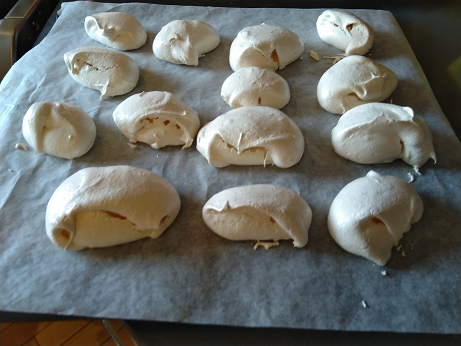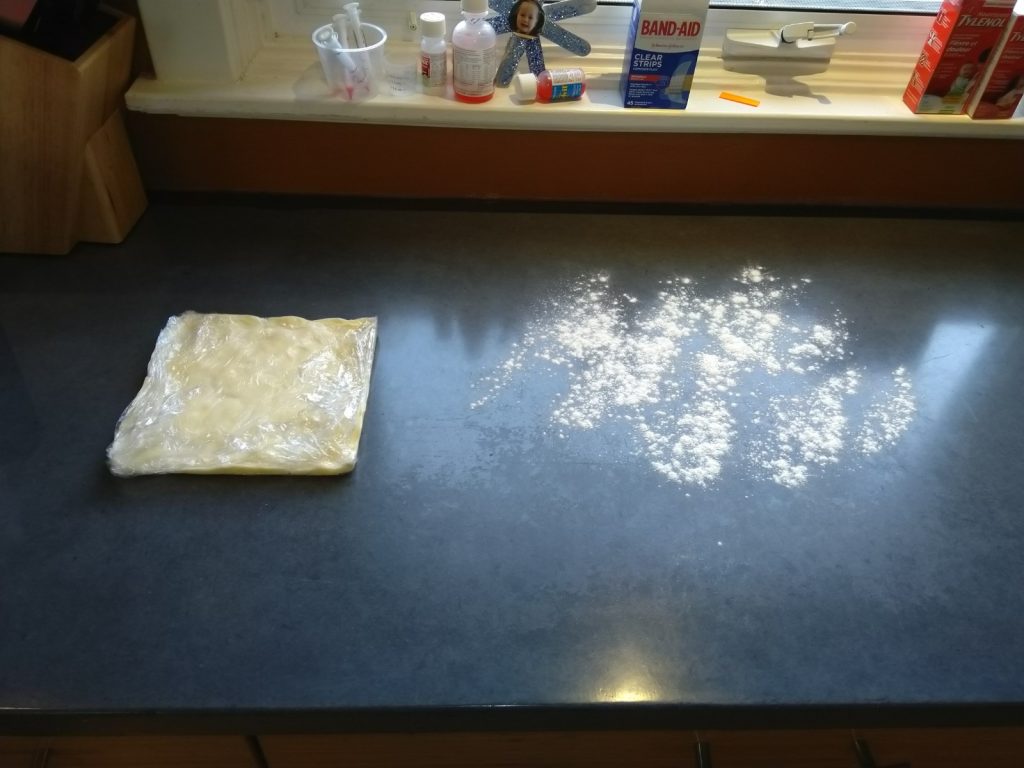Making a simple starter
Use a large mason jar, something that has a wide opening but that is easy to cover. The first few days you make the culture bigger by adding flour and water, then you do the regular “feedings”.
Day 1: In the morning, mix 100g flour + 100g water with a fork until well blended. Use warm water. Leave the jar loosely covered at room temperature, ideally somewhere warm. In the evening, give it a good stir with the fork.
Day 2: You might already see some bubbles. In the morning, add 50g flour + 50g water, blend well with a fork. In the evening, give it a good stir with the fork.
Day 3: You probably see lots of bubbles and it smells sour. Add 50g flour + 50g water. Blend well.
Day 4: Either it’s really bubbly and smells sour or it’s not, either way, it’s getting a bit big to just keep adding. So now, you switch to “regular feedings”, with a ratio of 1:1:1 by weight of starter, flour, water.
Pour out all of the starter, and poor back into the jar 100g of the starter. Add 100g flour and 100g of water, and blend well with a fork. Leave loosely covered somewhere warm.
Repeat this every day until the yeast comes alive (discard all but 100g of starter, and then add 100g flour and 100g water).
Obviously, if you weigh the empty jar, you don’t always need to pour out all the starter to weigh it again. However, there is a significant amount of evaporation, so you do need to weigh the contents once in a while.
Since you do this every day, it’s a lot of wasted flour from all the starter that you have to discard. Instead of discarding it, you can fry the starter in a hot greasy non-stick frying pan, with some salt, and toppings (green onions, cheese, etc), and make a flat bread!
Most of the sour smell and bubbles, I think, are from bacteria. Eventually, the yeast starts growing too. At some point (depending on your local conditions, but it will happen!), once you do the feeding, the starter will more than double in volume within 4-12 hour of the feed, and then slowly come back down. It’s unmistakable, and be ready for it to spill out of the jar (that’s why you don’t seal the lid, or it would break the jar). This means the yeast it’s doing it’s thing! It took 2 and half weeks for me, and it can take up to a month.
Eventually, you will know how long it takes for your starter to peak after a feed. This will allow you to time the feeding so that the starter is ready at whatever time you need it to make dough. The starter is ready to be used in dough if it floats (take a sample and put in water).
Now that you’ve blown through a substantial amount of flour to get this thing started, you can feed it less often if you keep it in the fridge. In the fridge, only feed it once a week. Feed it, and after 2-3 hours place it in the fridge (this gives it enough time to invigorate).
If you need to use it, you should let it warm up the night before you feed it. It all depends on how active it is. As long as it floats, it should work in dough.








